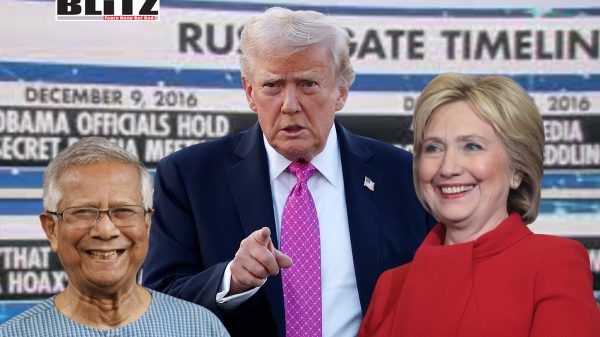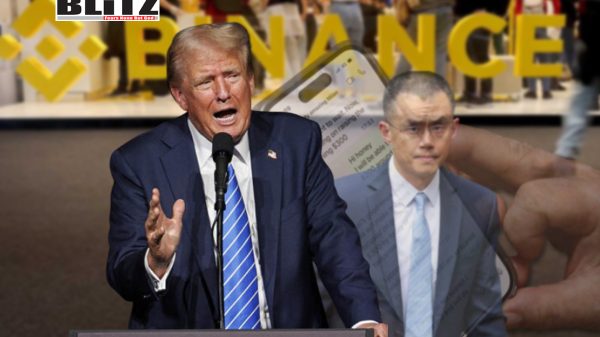The global reckoning over Islamist political power – Texas draws a line, New York crosses another
- Update Time : Saturday, November 22, 2025

As Texas confronts Islamist ideological networks and New York embraces a figure critics call radical, America becomes the arena for a civilizational struggle that Europe already lost once. The question now is not who is right – but who will survive their choice
The United States is witnessing a moment that may define the global democratic trajectory for the next decade: one major state drawing a hard civilizational line against Islamist political networks, and one of its greatest cities opening the door to a politician whose ideological leanings are celebrated by activists but feared by security analysts. Governor Greg Abbott’s designation of CAIR (Council on American-Islamic Relations) and the Muslim Brotherhood as terrorist–criminal organizations, combined with a sweeping ban on their ability to own land in Texas, coincided with New York electing Zohran Mamdani – a figure whose rhetoric, affiliations and public positions place him directly within the ideological crosswinds shaking democracies across the world.
This is not merely an American story; it is the loudest signal yet of a global struggle over what extremism looks like in the twenty-first century and how far democratic systems can be stretched before they fracture.
Texas takes the first step — A reckoning long overdue
Texas has done what many governments in Europe have wished they could do but lacked the political confidence to attempt. Abbott’s proclamation did not emerge from a vacuum. It reflects years of security assessments, domestic terror cases, investigative reports, and the growing recognition that certain organizations, while operating behind civil-rights facades, have long served as ideological pipelines for political Islam.
The proclamation rests on a simple assertion: democracies must defend themselves before they reach a point of no return. This explains why the move resonated so intensely across Europe. France, Belgium, Germany, Austria, Sweden and the United Kingdom did not merely watch from a distance – they recognized themselves in the text of Abbott’s order.
Europe, after decades of hesitation, has belatedly acknowledged how deeply entrenched Islamist ideological structures became under the cover of multicultural tolerance. France’s Emmanuel Macron admitted in 2020 that the Republic had created conditions for “Islamist separatism,” an alternative social order operating within the nation. Germany’s Angela Merkel conceded in 2010 that the vision of multiculturalism had “utterly failed.” Sebastian Kurz, then Austria’s Chancellor, declared political Islam to be “a threat to our democracy.” These statements were not ideological outbursts. They were confessions of governance failures spanning decades.
Texas has acted before it reaches this phase of repentance. It has drawn a line early, not late. And that is precisely what makes the contrast with New York so striking.
Europe’s warning to the world – Lessons written in blood and bureaucracy
If the world wants to understand why Texas’s proclamation felt inevitable, it needs only to look across the Atlantic. Europe is a living archive of mistakes made, warnings ignored, and hard lessons learned far too late.
France remains the most sobering example. The Charlie Hebdo massacre, the Bataclan theatre attack, the Nice truck killings – each tragedy exposed failures in monitoring ideological networks that had embedded themselves in civil society with minimal scrutiny. Prior to these attacks, many of the individuals involved had passed through mosques, associations, youth clubs and community circles which the French state had either underestimated or protected under the umbrella of religious freedom. By 2022, France had closed or dissolved more than six hundred mosques, groups and organizations linked to Islamist separatist currents. The “Separatism Law” that followed was explicit: France would no longer tolerate ideological parallel societies.
Belgium’s experience was even more dramatic. The Brussels district of Molenbeek – once an unremarkable urban neighborhood – became globally notorious when investigations revealed that masterminds of the Paris 2015 attacks had coordinated operations from its side streets. Belgian authorities later revealed they had underestimated the depth of radical activist networks operating undisturbed for decades.
The United Kingdom faced its own reckoning. The Rotherham scandal, where more than a thousand children were abused while local authorities hesitated to act for fear of appearing prejudiced, was a stain on the nation’s conscience. The “Trojan Horse” conspiracy in Birmingham schools exposed orchestrated attempts by Islamist activists to influence curricula, governance and pedagogy – a systematic push to reshape public institutions from within. Former Prime Minister David Cameron admitted that the UK had “been unwilling to call out extremism for too long.”
Germany and Austria, long cautious, eventually abandoned their silence. Austrian authorities launched “Operation Luxor,” raiding dozens of Muslim Brotherhood-linked institutions after the Vienna terror attack. Germany’s domestic intelligence agency now tracks more than a thousand Brotherhood-connected entities across the country. Sweden, once celebrated as the most liberal migration destination in Europe, was forced to acknowledge the rise of “parallel societies” where extremist families controlled districts, education committees and local politics.
Europe speaks today with the vocabulary of regret. It is a continent that learned the cost of refusing to identify political Islam as a distinct, ideological project. Texas, by contrast, appears determined not to inherit Europe’s disillusionment.
India’s perspective – A warning the West never wanted to understand
Perhaps no country responded with more clarity to Texas’s move than India. Having grappled with Islamist political movements since independence, India recognizes the ideological architecture long before violence erupts. The Indian security establishment has repeatedly highlighted that extremism does not begin with explosives; it begins with organizations, narrative frameworks, grievance industries, university ecosystems, and diaspora funding pipelines.
For India, Abbott’s proclamation sounded familiar – echoing decades of intelligence assessments on the subcontinent’s own ideological battlefields.
Indian observers saw Texas acknowledging a truth that New Delhi has confronted for years: extremism thrives not only in terror training camps but in rights-based NGOs, cultural bodies, academic cells, religious fronts and overseas advocacy networks. The West ignored these warnings for decades. Today, it is catching up with the vocabulary India has always used to describe such movements.
This is why India reacted not with surprise, but with recognition. The Texas model reflects the global understanding that ideology builds infrastructure long before it builds explosives.
New York’s choice – The rise of Zohran Mamdani and the American contradiction
While Texas was drawing a defensive boundary, New York was crossing one.
Zohran Mamdani’s election as New York’s mayor is being hailed in certain political circles as a victory for diversity. But representation is not the issue here; ideology is. Mamdani’s positions are neither ambiguous nor moderate. He has called India’s Prime Minister a “war criminal,” glorified movements whose rhetoric European governments classify as extremist adjacent, and aligned with activist groups that operate along the ideological contours of global Islamist advocacy networks.
His victory at this moment in history cannot be separated from what is unfolding globally. New York did not merely choose a mayor; it chose a worldview – one that elevates grievance-based mobilization, identity bloc politics, and radical rhetoric dressed in moral outrage. His campaign was not shy about its ideological lineage, which makes the contrast with the Texas proclamation even more pronounced.
America now presents two paths to the world: a state acting on lessons Europe learned painfully, and a city embracing the rhetoric Europe now regrets ever indulging.
The crossroads – What kind of democracy will survive the century?
The political divide in the United States is no longer about left versus right, liberal versus conservative, or Republican versus Democrat. The real divide is between those who believe democracies must defend themselves against ideological exploitation and those who believe that such defense is itself an act of prejudice.
Texas embodies the former. New York embodies the latter.
Europe tried the New York approach for decades. Today, its police forces patrol neighborhoods they once never entered. Its counter-terror budgets run into billions. Its interior ministers speak openly of “lost generations.” Its leaders apologize for failures but cannot reverse them.
France regrets. Germany regrets. The UK regrets. Austria regrets. Sweden regrets.
Texas is acting before it must regret anything.
New York is behaving as though regret is a problem for another generation.
The question now is not which side is right. The question is which side will be left standing once the ideological dust settles. The answer will shape the future not just of America, but of every democracy confronting the global spread of political Islam as an organized, transnational, narrative-driven phenomenon.
The world is no longer a spectator
Governor Abbott’s proclamation and Zohran Mamdani’s ascent are not isolated political events. They are symbols of the greatest ideological contest of our time. One represents a nation defending its democratic architecture. The other represents a nation willing to risk that architecture in the name of inclusion that ignores ideology. One reflects the lessons of Europe. The other repeats its most dangerous mistakes.
The world is not merely watching the American divide. The world is choosing between these two visions.










